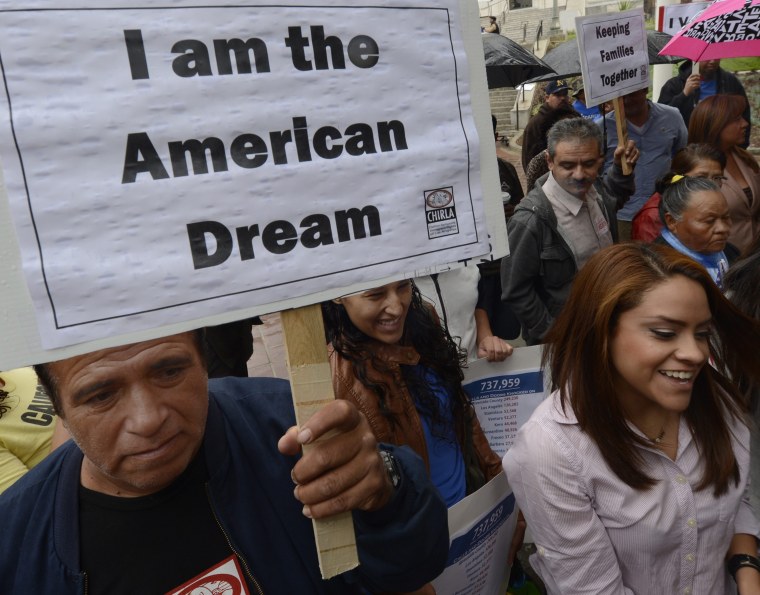In 2007 the U.S. Senate choked the life out of the last major immigration reform initiative. Republican senators, fourteen to be exact, refused to give President George W. Bush the votes needed for cloture.
This week, the same chamber revived the very issue they squashed no more than five years ago. And more importantly, back-of-the envelope math shows that with 55 Democrats, two Independents, and the four Republicans who helped draft the immigration reform, there will not be a replay of the Senate immigration showdown.
Immigration reform also has an active advocate in President Obama and a Senate chamber that can make the push. That’s the good news.
Now for the bad news. There are two big and messy inter-related obstacles-the details and time.
Devil is in the details
The immigration reform proposals put forward by the Senate and the president are very similar. Both call for more border enforcement, a pathway to citizenship, guest worker permits, and employer enforcement. The one major difference however is in the detail of when undocumented persons can be granted citizenship.
Under the Senate plan eligibility of a green card is contingent on, “requiring our proposed enforcement measures be complete.” This is no minor detail. While in theory the Senate plan puts forward a path to citizenship, in practice, it's a stop gap. This condition would allow anti-immigrant forces to indefinitely postpone a pathway to citizenship by claiming that undocumented immigration hasn’t been sufficiently enforced.
The Senate’s conditional clause is what it means for the devil to be in the details. It is over this clause that the bi-partisan chumminess of the Senate will fall apart. Democrats will not want their hands tied, and Republicans will want to look tough.
Beyond the Senate, the pathway to citizenship condition will not play well with the president. Obama has staked out immigration as one of his legacy issues and is not going to allow the Senate to move forward with a bill that in practice does not include a pathway to citizenship.
The enforcement condition leads to the second main obstacle that could see the 2013 immigration reform never see the light of day, time.
A ticking time bomb
For immigration reform to become a reality it must be passed by the end of July before Congresses’ summer recess. If it is not passed by then, consider immigration reform as good as dead.
The House of Representatives will be the biggest challenge to immigration reform because of its Republican majority. The closer we get to the 2014 primary season, the greater the number of GOP House members who will get skittish about voting for reform. Immigration reform will not be wildly popular with the Republican base, but at least if there is the buffer of time it will give representatives more freedom to support immigration reform.
If immigration reform is not passed before members of Congress go home to their districts for summer recess then we could see a replay of the disastrous Health Care Reform town halls of 2009. Anti-immigration reform media outlets and conservative public voices (e.g. Rush Limbaugh, the National Review) have already started stoking public opinion against immigration reform. Come August, town halls could turn amnesty into the new “death panels” and scare the begeezus out of all Republicans.
By design Congress is a slow-moving vehicle. Incrementalism, not sweeping change, is the name of the game. As such, comprehensive immigration reform faces a built-in institutional speed bump. Add to that the time the inter-party and inter-branch haggling that the conditional clause will take. The president currently has momentum, but it won’t last long; more specifically, it’ll last him till August.
This column first appeared on NBC Latino.
